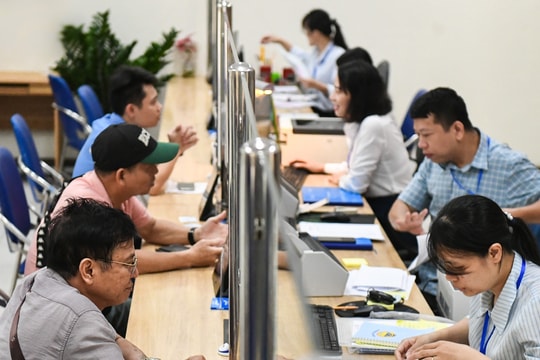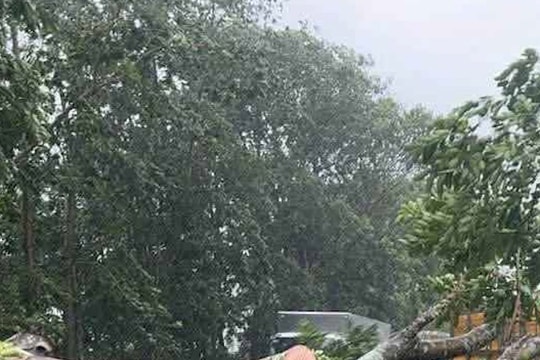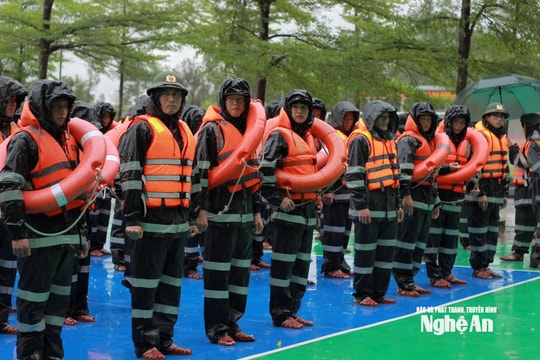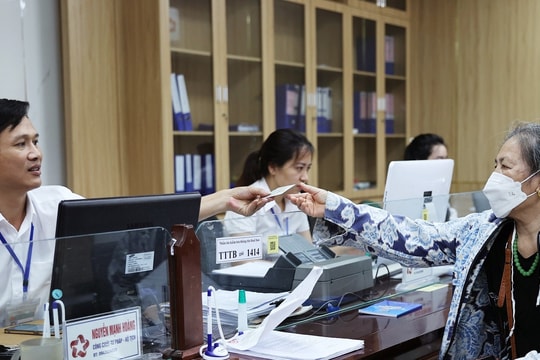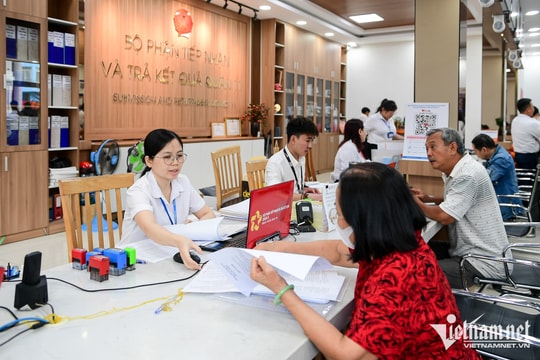7 ways to recruit strategic leaders and managers
The urgent need for innovation requires a suitable cadre. Therefore, an appropriate selection mechanism must be established.
Since ancient times, the selection of talents in general and heads of ministries in particular has always been placed at the top of our ancestors' major national policies, related to the survival and strength of the country.
Currently, the urgent need for innovation requires a suitable team of staff; therefore, an appropriate selection mechanism must be established.
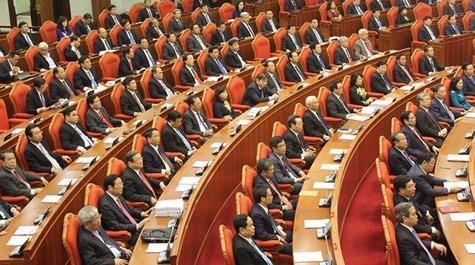 |
| The 7th Central Conference of the 12th tenure focused on discussing the building of cadres at all levels, especially at the strategic level. |
5 principles guiding creative work
Stemming from the task of comprehensive and synchronous innovation, this team must be sufficient in quantity and quality to ensure suitability and equal responsibility for holding the entire political system apparatus and all key and main aspects of the country.
Ensure continuity, connectivity, suitability, and efficiency in operating the apparatus in a streamlined and unified direction in terms of structure, age, gender, etc., not localized, not closed, not lacking, not broken, etc., considered in the overall team suitable for the tasks and aspects.
Ensure a balance between meeting immediate needs and the team's long-term strategic development.
Innovation in the direction of decentralization and delegation of power closely linked to the responsibility regime and responsibility control according to the authority of the departments implementing the work of organization and creation; strict and timely rewards and discipline.
Ensure the Party's absolute, centralized and unified leadership in the construction work.
5 words "transform" in selection
Standardization: Each field requires a type of cadre that is appropriate and suitable for it. Therefore, it is necessary to standardize very specifically and meticulously on a scientific basis for each type of cadre, in each aspect, whether through examination or competition... all must follow the following principles, ensuring quality in the selection work.
Democratization: The core of the democratic selection issue is to publicize the standards, requirements and selection regulations, covering all forms of selection. It is necessary to ensure the equal rights of candidates and the democratic rights of members of the Selection Council. Only then can candidates and the Selection Council perform their duties and opinions well.
Accountability: This is the issue of controlling power. All parties, from candidates, nominees, voters, and the final decision-makers, must be equally responsible for their actions before discipline and the law. Only then can we overcome the situation of "shirking responsibility", forming cliques, and group interests... in selection. Particularly in the election, those with the right to vote must also be responsible for the election and have the right to dismiss those who are no longer trusted. The exercise of power must be controlled to the extent that it is exercised, by institutions, not simply by kindness and morality.
Leveling: Depending on the requirements of each type of staff, each position, each type of work and staff, decide on flexible selection: one round or many rounds. It is necessary to clearly define the requirements and time for each level of selection. It is also possible to skip levels during the selection process, in specific cases.
Verification: This is an extremely important issue, if not decisive. During the selection process and after the selection by level, it is very necessary to re-examine the selected person flexibly and skillfully. More than 700 years ago, Tran Quoc Tuan gave us a great lesson in the aspect of selecting people to be generals, including 8 points: 1- Ask verbally to see if the answer is clear; 2- Ask verbally to see if there is variation; 3- Let spies test to see if they are loyal; 4- Ask clearly and thoroughly to see how virtuous they are; 5- Take property to test to see if they are honest; 6- Use beauty to test to see if they are upright; 7- Use difficult tasks to test to see if they are brave; 8- Let them get drunk to see if they can maintain their attitude. President Ho Chi Minh also left behind many great experiences and lessons in the work of skillfully selecting and skillfully using cadres. Teachers: People who can take charge and solve problems in difficult circumstances. That is, we must be sure: The work will be directly tested and this is the decisive measure.
I think that is a valuable experience in testing, screening, and selecting; it should be applied and done regularly, periodically, even for those who have been selected.
7 ways to "recruit" staff
This distinction is also only relative. Because they sometimes overlap, flexibility is required in application.
Examination: This is the most traditional and classic method but brings high efficiency, applied in many times and many countries. For us, through examination to select talented people to become experts or leaders and managers. We need to pay special attention to the ability of vision, organization, and ability to handle situations. Especially for leaders and managers, we must pay great attention to virtue and the ability to grasp human psychology, because that work requires first of all the art of grasping the psychology of organizing and acting people.
Election: We are very familiar with elections to select officials for the Party, government, and organizations. In recent years, we have accumulated a lot of experience in electing leaders and managers. If the election process is carried out democratically, the results will be quite high. It is worth noting that, when running for election, the elected person can easily make very loud promises to "deceive the people" in order to win more votes. Therefore, after the election, there needs to be a mechanism for voters to closely monitor, check between words and actions within a time limit, and handle the elected person according to the regulations (or dismiss, suspend...).
Recommendation: This is the selection through recommendation from the bottom up. Since ancient times, our ancestors have done it and thanks to this method, many talented people have been recruited. President Ho Chi Minh also sent letters to villages and communes to seek recognition of the recommendation of talented people for the revolution. In the past, when recommending, the recommender even used his life and property to guarantee the recommended person. Now, if the wrong person is recommended, the recommender will be punished, depending on the level.
Nowadays, we really need to use this measure to open more "doors" to attract talented people for our staff.
Application: We often call it candidacy to elect people into the apparatus through elections. But this candidacy is usually introduced by the collective. Here, when we talk about application, we mean that an individual voluntarily applies for the position, and is approved by the responsible collective. This has not become popular due to psychological complexes, and we are not used to this way of doing things. It needs to be widely popularized and there must be sanctions to encourage talented people to apply for the position. On the other hand, there must be clear regulations to prevent the abuse of self-application, which can easily cause internal chaos and complicate the situation of people with improper motives.
Appointment is the appointment of the competent authorities on cadres to the subordinates. In this way, the superiors often base on the proposal from below, which can be a direct proposal, or through a vote of confidence, to "probe".
However, because the vote of confidence is only for "reference", there are many cases where the vote of confidence is one thing, but the appointment is another. Therefore, the competent authority needs to be truly democratic and open-minded to minimize such problems, so that the appointment is truly correct and the right person is appointed.
Competition: This is a form that is still very new to us. Without competition, it is difficult to select truly talented people. Because this is the most fair, democratic and equal form. It is also the most difficult and harsh path, but it is indispensable if we want to have a team of cadres who are equal to the Party's leadership responsibilities.
Recruitment: In essence, it is also a form of appointment, but it is the direct designation of a person to take charge of a job or position by a competent authority.
The distinction of 7 forms of selection as mentioned above is only relative. Therefore, depending on the specific case, talent selection can use one or a combination of many forms. In short, no matter what form, that is the selection work./.

